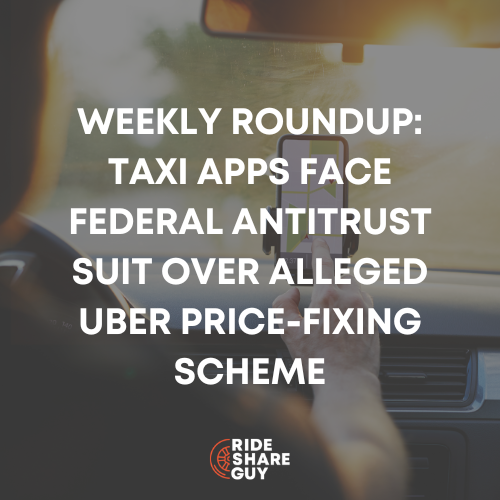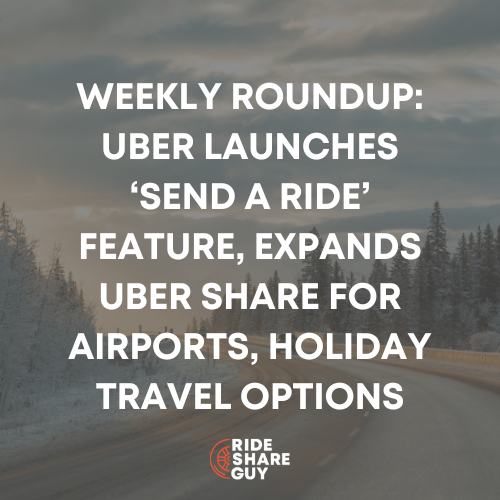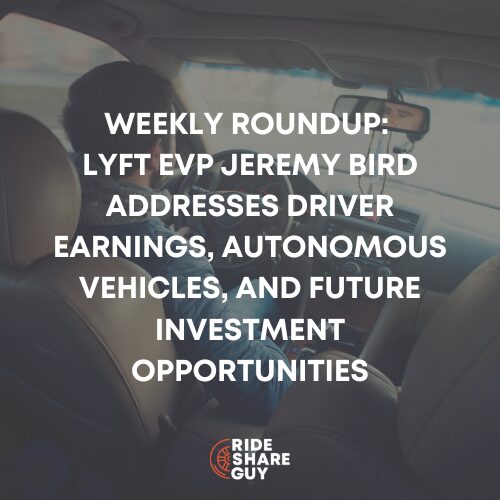In this week’s roundup, senior RSG contributor John Ince summarizes the back and forth among Uber, Lyft and California. It looks like Uber and Lyft will really be relying on Proposition 22, so if you’re a California resident, make sure to register to vote! That news, plus insurance protection specifically for rideshare drivers and more.
Uber ridership has cratered and no one knows when it’ll come back [Washington Post]
Sum and Substance: Frequent riders said it was like Uber ‘didn’t exist’ anymore. Longtime observers fear riders won’t come back after lockdowns ease up….
The ride-hail industry is experiencing “a tale of 10,000 cities,” Uber chief executive Dara Khosrowshahi said during a call with analysts last week. Markets such as Hong Kong and New Zealand, which were hailed as early success stories in fighting the pandemic, exceeded their pre-pandemic ridership. But U.S. ridership has continued to suffer. Uber said gross bookings on rides were down 75 percent in the three months through June….
Recovery has been most prominent in cities such as New York, which bore the strongest early impacts of the U.S. outbreak.
My Take: This is a good roundup of where Uber stands during the pandemic. From the looks of things, it’s not looking good for Uber.
AN UBER AND LYFT SHUTDOWN IN CALIFORNIA LOOKS INEVITABLE — UNLESS VOTERS BAIL THEM OUT [The Verge]
Sum and Substance: No Uber and Lyft rides in California? After a judge rejected the companies’ effort to delay an order that they classify drivers as employees, it seems inevitable. Uber and Lyft have until August 20th to comply with the order. But the companies have said they will need to go dark in the Golden State in order to retool their business.
The judges may not have the last word. Uber and Lyft are counting on California’s notoriously mercurial voters to help them circumvent AB5, which went into effect in January and makes it more difficult for companies to use independent contractors. Uber and Lyft built their respective businesses on the concept of using freelance drivers who aren’t eligible for traditional benefits like health insurance and paid leave.
Earlier this year, the companies, along with DoorDash, raised nearly $100 million to place a question on the November ballot. They succeeded, and this fall, voters will be asked to permanently classify ride-hailing drivers as independent contractors. The measure, called Proposition 22, also directs the companies to adopt certain labor and wage policies that fall short of traditional employment….
My Take: This is a fascinating showdown. On the drivers’ side, there are hundreds of thousands of dissatisfied drivers who could do most anything to make their case. On the company side, you’ve got lots of money and some drivers who aren’t sure. Gonna be interesting…
Uber’s $25-a-month subscription service is now available across the US — except California [The Verge]
Sum and Substance: Uber Pass, the subscription service that the company first introduced in 2018, is now available nationwide — minus California.
The expansion of Pass — an Amazon Prime-style subscription service that allows Uber customers to pay a monthly fee for discounted rates for Uber rides, Uber Eats deliveries, and scooter and bike trips — comes at a time when the company is struggling to maintain its financial footing during the coronavirus pandemic and fighting a dramatic legal battle in its home state.
My Take: A 10% discount isn’t all that much, but it’s an indication that Uber is still in business outside California. That’s something…
Uber Mulls Switching To Franchise Model In California [Pymnts]
Sum and Substance: Uber Technologies Inc., facing a Thursday (Aug. 20) deadline to reclassify its freelance drivers in California as employees, is considering licensing its brand to independently operated franchises….
Uber is under a court order to categorize its workers as employees rather than as gig workers, a move that would provide the drivers with benefits such as sick and vacation pay, unemployment insurance, workers’ compensation insurance and healthcare.
An Uber spokesman told Bloomberg that the franchise model would look similar to its operations when it launched in 2011, when users were only allowed to hail a black luxury car. The price was 1.5 times that of a taxi.
My Take: The ever resourceful Uber may try this in California. They already do it in Germany and other parts of Europe. Whether it would work in California is anybody’s guess.
Read more about the franchise-like model Uber is considering.
Uber and Lyft competitors ready to pounce if service is suspended in California [CNBC]
Sum and Substance: Ride-hailing competitors to Uber and Lyft are already preparing to seize the moment if the industry leaders decide to pull their services in California while fighting a new labor law….
Ride-hailing competitors to Uber and Lyft are already preparing to seize the moment if the industry leaders decide to pull their service in California while fighting a new labor law….
At least two start-ups that spoke with CNBC are accelerating their plans to enter California in light of Uber and Lyft’s potential retreat.
Alto, a Texas-based rideshare service, had planned to expand to California by early 2021. CEO Will Coleman said Alto now hopes to be there no later than early November…
Another start-up, Arcade City, is no stranger to swooping into cities in a standoff with the ride-hailing leaders. It grew its cooperative rideshare model in Austin when Uber and Lyft briefly left due to stricter background check requirements they argued would add bureaucracy to their sign-up process.
My Take: So they’re waiting in the wings. Doesn’t look like they’ll get the chance right now in California, but let’s wait a month or so then see.
Uber and Lyft granted emergency stay, will not shut down in California tonight [LATimes]
Sum and Substance: Uber Technologies Inc. and Lyft Inc. were spared from having to rapidly convert their California drivers to employees after a state appeals court agreed they can keep their business models in place while challenging a judge’s order to comply with a state labor law.
The decision Thursday is a big but temporary reprieve for the ride-hailing companies, whose leaders threatened to shut down in their home state indefinitely, saying they would not be able to shift to providing drivers with costly benefits including health insurance and overtime on short notice.
My Take: Well, well, well. So Uber and Lyft don’t have to shut down, but it’s really not a victory. They have to prepare a plan and resubmit it to the court. I wonder what’s going to be in that plan!
Read more on our analysis about Uber and Lyft not leaving California.
Rideshare Insurance Startup Buckle Raises $31M [Crunchbase]
Sum and Substance: Insurtech startup Buckle landed $31 million in its Series A round, the company announced last week.
Buckle provides rideshare drivers with one insurance policy to cover their personal driving as well as rideshare driving.
While traditional insurance companies look at factors like age and driving history, Buckle takes other elements about a person’s driving into account, such as their rideshare star rating. Earlier this year, the company introduced a partnership with Lyft to expand its combined insurance coverage.
Editor’s Note: While Buckle is, for now, only available in Georgia, it has plans to expand nationwide. To actually have an insurance policy designed for rideshare drivers would be incredible, plus it should reward good drivers in the form of lower premiums by taking each driver and their history into account. Looking forward to this!
Readers, what do you think of this week’s roundup?
-John @ RSG





